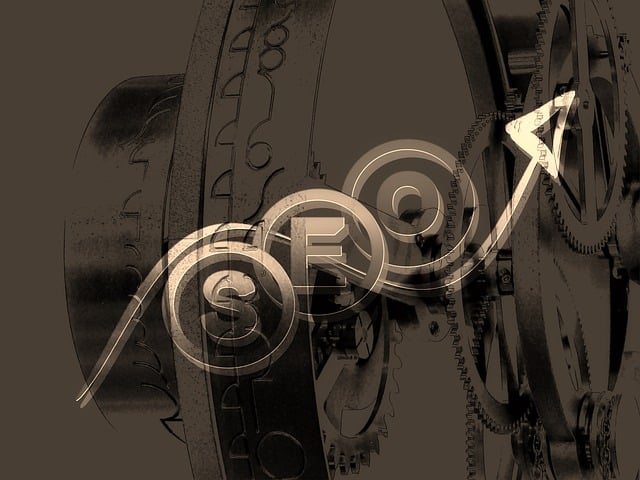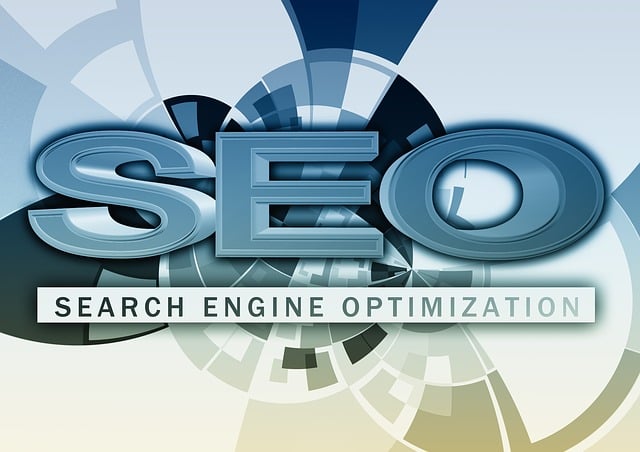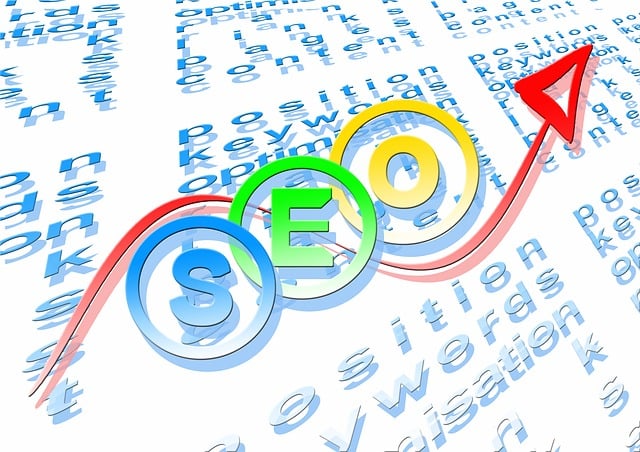In today's digital era, an SEO Agency specializing in e-commerce websites is vital for businesses to stay competitive. These agencies optimize product pages through enhanced critical elements (titles, meta descriptions, content), improving user experience and search engine visibility. Their strategies drive organic traffic, build trust, lead to higher sales, and provide a significant market advantage.
Key services include:
Keyword Research: Uncovering long-tail keywords with high intent using buyer journey understanding.
Optimized Title Tags & Meta Descriptions: Crafting tailored, keyword-rich tags to match consumer queries and increase clicks.
Compelling Product Content: Engaging storytelling combined with SEO best practices for higher traffic and conversions.
Multimedia Optimization: Enhancing user experience with high-quality images and videos that drive engagement.
Site Speed & Mobile Optimization: Delivering products swiftly through improved load times and responsive design.
Structured Data Markup: Providing search engines with detailed product information to boost rankings.
* Backlink Building: Securing high-quality backlinks from authoritative industry sites for increased trust and rankings.
Through continuous tracking of essential SEO performance metrics, agencies demonstrate results, optimize strategies, and achieve tangible business outcomes for their e-commerce clients.
In today’s digital era, a strong online presence is paramount for e-commerce success. As a leading SEO agency specializing in e-commerce websites, we understand the profound impact of Search Engine Optimization (SEO) on driving sales and attracting customers. This article guides you through the essential components of e-commerce SEO, from keyword research to structured data markup, providing actionable strategies to elevate your product pages’ search visibility and boost conversions. Discover how optimizing title tags, crafting compelling content, leveraging high-quality media, improving site speed, building backlinks, and tracking metrics can revolutionize your online store’s performance.
Understanding E-commerce SEO and Its Impact on Sales

In the competitive world of e-commerce, understanding Search Engine Optimization (SEO) is paramount for driving sales and attracting customers. SEO for e-commerce product pages plays a pivotal role in increasing online visibility and boosting website traffic. An SEO agency specializing in e-commerce websites employs strategic techniques to optimize product listings, ensuring they rank higher on search engine results pages (SERPs). By optimizing essential elements like titles, meta descriptions, headers, and content, these agencies enhance the overall user experience, making product pages more engaging and informative.
Effective SEO strategies for e-commerce not only improve a website’s organic reach but also foster trust and credibility among potential buyers. Well-optimized product pages provide clear product information, enhance search engine rankings, and increase the likelihood of conversions. This, in turn, can lead to higher sales, improved brand reputation, and a significant competitive edge in the market, making SEO a powerful tool for any e-commerce business.
Keyword Research for Product Pages: Finding the Right Terms

Keyword research is a critical step in optimizing your e-commerce product pages for search engines, and it’s where an SEO agency for e-commerce websites truly shines. The goal is to identify relevant keywords that potential customers are using to search for products like yours. Tools like Google Keyword Planner can help uncover long-tail keywords—specific phrases with lower competition but high intent. These terms often reflect what real users are searching for, making them powerful for improving visibility and driving targeted traffic.
When conducting keyword research for product pages, consider the buyer’s journey. Start with broad, general terms that describe your product category and work towards more specific, long-tail keywords. Incorporating these terms naturally into your product titles, meta descriptions, and content not only enhances SEO but also ensures your product pages are tailored to the needs of your target audience.
Optimizing Title Tags and Meta Descriptions for Maximum Click-Through Rate

E-commerce product pages are often the first point of contact between a potential customer and your brand, making the optimization of title tags and meta descriptions crucial for driving click-through rates. These elements play a significant role in search engine rankings and play a pivotal part in converting visitors into buyers. A well-crafted title tag should accurately reflect the product while incorporating relevant keywords that align with consumer search queries. For instance, an SEO agency specializing in e-commerce websites would advise against generic titles and instead suggest tailored, keyword-rich tags that entice users to click.
Meta descriptions, though not directly influential on rankings, can significantly impact user engagement. They provide a concise summary of the page content below the link in search results. A compelling meta description, crafted with an understanding of customer intent, can increase clicks by highlighting the unique benefits or features of the product. An SEO-focused agency would guide e-commerce businesses to craft persuasive descriptions that not only include keywords but also offer value, leaving a positive impression on potential customers.
The Art of Creating Compelling and SEO-Friendly Product Content

Creating compelling and SEO-friendly product content is an art that every e-commerce business should master, especially when competing in a crowded online market. A top-performing SEO agency for e-commerce websites understands this and crafts content that goes beyond basic product descriptions. Each word is carefully chosen to engage both potential customers and search engines, ensuring the page ranks higher on relevant searches.
Effective product content tells a story, painting a vivid picture of the item’s features and benefits in an authentic, persuasive manner. It should be optimized with strategic keyword placement, but also provide genuine value, answering customer questions and addressing their pain points. By balancing SEO best practices with captivating storytelling, e-commerce websites can attract organic traffic, boost sales conversions, and foster a positive user experience.
Leveraging High-Quality Product Images and Video to Boost Engagement

High-quality product images and videos are essential tools in an SEO agency’s arsenal for e-commerce websites. Visual content is a powerful way to capture the attention of online shoppers and significantly boost engagement. When optimizing product pages, ensure that each image is sharp, well-lit, and showcases the product from multiple angles. A good practice is to include lifestyle images that demonstrate how the item fits into a customer’s daily life, making it easier for them to visualize the benefits.
Videos can further enhance the user experience by providing a dynamic view of the product, especially for complex or unique items. This multimedia approach not only attracts visitors but also keeps them engaged longer, reducing bounce rates. By incorporating these visual elements effectively, an SEO agency can help e-commerce sites improve their search rankings and ultimately drive more sales.
Improving Site Speed and Mobile Optimization for Better User Experience

In today’s digital era, where users expect instant gratification, improving site speed is paramount for e-commerce product pages. A fast-loading website enhances user experience, reduces bounce rates, and boosts conversion probabilities. An SEO agency for e-commerce websites should focus on optimizing images, minifying code, leveraging browser caching, and utilizing content delivery networks (CDNs). These techniques ensure that your site delivers products to users’ screens swiftly, making it more appealing and competitive in the market.
Mobile optimization is another critical aspect often overlooked but with significant implications. With a growing number of shoppers using smartphones and tablets for online purchases, ensuring your product pages are mobile-friendly is essential. Responsive design, where the layout adjusts seamlessly across various screen sizes, improves readability, navigation, and overall usability. An SEO agency should prioritize testing and implementing mobile-first strategies to cater to this vast user base and drive successful e-commerce sales.
Implementing Structured Data Markup for Enhanced Search Visibility

Structured Data Markup is a powerful tool that every e-commerce business should leverage to boost their search visibility and drive more traffic from SEO agencies’ efforts. By adding this code to your product pages, you provide search engines with a clearer understanding of your products, their features, and their relevance to user queries. This structured data enables search engines to index your site more effectively, resulting in improved rankings for product-specific keywords.
For example, implementing Schema.org markup allows you to highlight key details like product name, description, price, availability, and even customer reviews directly within the search results page. This not only enhances the user experience but also increases click-through rates, as potential customers can quickly assess whether your products meet their needs without clicking through to your site. An SEO agency specializing in e-commerce websites can assist in implementing this structured data markup correctly, ensuring your product pages are optimized for maximum visibility and conversion.
Building Quality Backlinks: A Strategy for E-commerce SEO Success

Building quality backlinks is a pivotal strategy for e-commerce SEO success, and it’s often what sets top-ranking sites apart. As an SEO agency specializing in e-commerce websites understands, high-quality backlinks signal to search engines that your site offers valuable content. They act as votes of confidence from other reputable websites, indicating that your product pages are trustworthy sources of information.
Focus on acquiring backlinks from authoritative and relevant sites within your industry. This can be achieved through various methods, such as creating engaging, shareable content (like detailed product reviews or insightful blog posts), guest blogging on influential platforms, or collaborating with influencers in your niche. Remember, the goal is to attract natural backlinks; avoid purchasing links, as it can lead to penalties from search engines.
Tracking and Analyzing Key Metrics to Measure E-commerce SEO Performance

For an SEO agency specializing in e-commerce websites, tracking and analyzing key metrics is vital to understanding the performance of their strategies. By monitoring essential KPIs such as organic traffic, click-through rates (CTR), conversion rates, and bounce rates, agencies can gauge how effectively they’re driving qualified leads and sales. These insights enable data-driven decisions, allowing them to optimize product pages for better search engine rankings and improved user experiences.
E-commerce SEO performance metrics also include examining the quality of traffic—focusing on visitors who complete desired actions like adding items to carts or making purchases. Analyzing this data helps identify trends, pinpoint areas needing improvement, and demonstrate the value of SEO efforts to clients. Ultimately, it enables the SEO agency to refine strategies, ensuring they’re aligned with business goals and driving tangible results.
